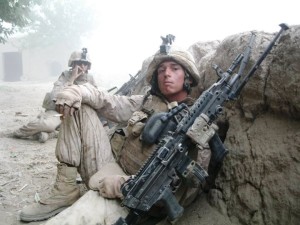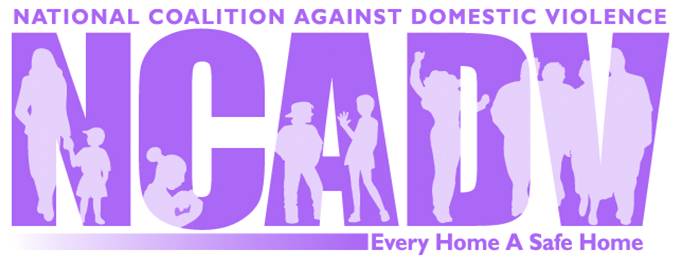 “PTSD is the fear controlling you. Exposing your fear is controlling your PTSD!” — Anthony Parsons.
“PTSD is the fear controlling you. Exposing your fear is controlling your PTSD!” — Anthony Parsons.
Post Traumatic Stress Disorder, otherwise known as PTSD, is defined as a condition in which a person experiences enduring physical or psychological symptoms after an extremely stressful event or series of events.
In World War I, this problem was known as Shell Shock. During World War II, this was called Combat Fatigue. Now, it is known as PTSD.
Soldiers are trained to believe they must kill or be killed during combat in war. War may leave deep, psychological scars.Understanding PTSD and the symptoms will help those who welcome home the soldier receive the treatment he or she needs so the soldier may work on regaining their psychological health and freedom.
The following are seven indicators of PTSD:
(1). Flashbacks are the hallmark of PTSD. A flashback includes vivid memories, feelings, and images of traumatic experiences. When I say “hallmark” I mean this is the most common symptom for those plagued with PTSD.
(2). Nightmares are the second highest indicator of PTSD. Many times, soldiers will sleep with the lights on (if lighting is available) or avoid sleep as long as possible so the frequent nightmares will not reappear.
(3). Sleeplessness. This goes along with nightmares, mentioned above. The soldiers know if they fall asleep, they may have nightmares; therefore, a vicious cycle ensues to try to stay awake for extended periods of time. Soldiers in the war zone have gone for 28 hours regularly with no sleep. Studies have proven that after 28 hours with no sleep, the possibility of making grave errors rises to an all-time high. This places the soldiers at elevated risks and can get them killed.
(4). Recurring anxiety is a common denominator for those affected by PTSD, especially soldiers returning from war. They are anxious about many different things. Think about it this way. You, as a civilian, are at home, getting dressed for work and must decide what to wear that day. As a soldier, the warrior is constantly apprehensive of where his boots, gear, bitch (M-16), and extra ammo are when he is at war. It takes a while to get past this.
(5). Intrusive thoughts haunt the soldier, as do certain sounds. When the soldier is in the war zone, he or she is on high alert at all times. They see and hear things that we have not seen or heard, such as unpleasant thoughts of shootings the day before, losing their buddies, horrific things we, as civilians, have not had to deal with. These intrusive thoughts can enter the mind at any time, until they are controlled. There are instances when they cannot be controlled 100% of the time.
(6). A soldier has problems with attention when he or she has PTSD. Soldiers are conditioned to never be relaxed, so when they do have that opportunity of being outside the war zone, there is difficulty in paying attention. The soldier is thinking about war again and that is where his or her attention is focused. The mind wanders if PTSD is not treated.
(7). Social withdrawal is the final sign of PTSD. Soldiers have a difficult time readjusting to civilian life after coming back from war. They do not feel they can talk about what they have seen or done because nobody will understand them. As a result of this, they turn their thoughts inward, this becomes shame, which turns into blame, and one big circle of negative forces drive them deeper into PTSD.
The good news is that there is hope for those who suffer from PTSD. The first step for soldiers returning from war or any Veteran suffering from PTSD is to go their local Veterans Hospital (VA) and get the diagnosis. File papers for disability. Seek out treatment from the VA in support groups, find a good Life Coach who fully understands PTSD, or search for a mental health professional who can treat PTSD. Many cannot do so. What is important is that you find a therapist or professional person you can relate to, someone you can work with and feel comfortable with, and develop a relationship with. Please understand that this is not a quick fix. There is more than one method of approach for PTSD and it is a partnership to find what works best for you.
Watch for my next article titled, “Reasons Why Soldiers Have Difficulty Adjusting to a Civilian Lifestyle After Serving Their Country.”
©Copyright — Gayle Joplin Hall, PhD. All rights reserved worldwide. None of this material may be downloaded or reproduced without written permission from the author.















One out of eight returning soldiers are diagnosed with Post Traumatic Stress Disorder. PTSD is trauma-based and often misdiagnosed. My guess is that the number should be much higher for those who have been in combat (more like one in four). Clinicians frequently confuse PTSD with depression, bipolar, or anxiety. What makes this so bad is that when the soldier is returning from his or her tour of duty and is ready to seek help, he or she cannot receive the proper help they need, even at the Veteran’s Administration (VA Hospital).
I realize my article stated to go to the VA and receive the diagnosis first so you could receive the help you need. Yes, this is the first step. Please understand you may be in for a battle, so be persistent and diligent. Some reading my article (posted on many sites) will not like what I have written, to which I say, “too bad.” I am writing the truth. Many of the clinicians working at VA Hospitals are not properly trained to recognize the symptoms of PTSD. Therefore, the soldier may be easily classified as “mildly depressed” and given prescription drugs to offset depression. Depression and PTSD are NOT the same thing. Furthermore, if misdiagnosed, PTSD does not just “disappear” with time.
Research scientists will argue that this is an acute mental illness. Yes, PTSD is a mental illness, as listed in the DSM-IV. Although I am not a clinician, I am a Doctor of Psychology and have learned and studied the DSM-IV. As one who suffers from trauma-induced PTSD myself, I will say that clinicians may be incorrect when they declare PTSD as an acute illness. For me, this is chronic and has been for 21 years – definitely not an acute illness!
Additionally, avoidance is one strong cluster of PTSD. If the soldier does indeed get the diagnosis from the VA, the first thing the clinician may try to do is to place the soldier in a support group. Yes,you may receive prescription meds; however,you may also be required to attend a support group there at the VA. There is no “one cure fits all” for those afflicted with PTSD. Avoidance, anxiety,and social withdrawal may keep the soldier from wanting to be in a support group with a bunch of people – even with other soldiers.
Remember, you do have choices and it is best to figure out what works best for you. Perhaps one-on-one guidance with someone you can trust is better suited for your needs. Only you can decide what is best for YOU. God bless you.
Shining my love your way, Dr. Gayle J. Hall